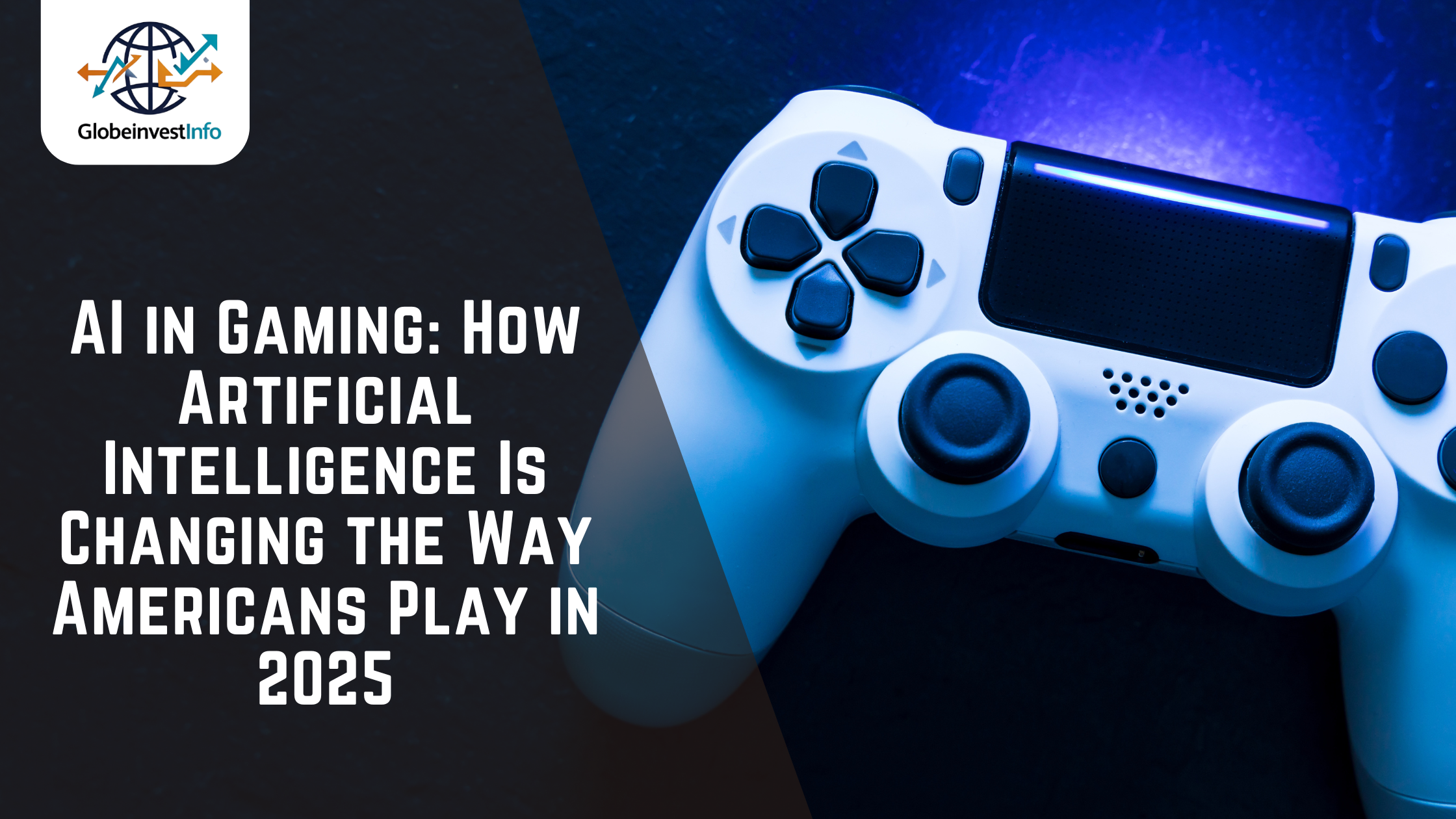Gaming in the US has grown from a hobby into a massive industry. Millions of Americans play on consoles, PCs, and mobile devices, and the demand for more realistic, personalized, and engaging experiences keeps rising. In 2025, artificial intelligence (AI) is at the center of this evolution, changing not only how games are developed but also how players interact with them.
From smarter non-player characters (NPCs) to personalized gaming experiences, AI is making video games more dynamic, challenging, and enjoyable. Here’s how AI is shaping the future of gaming in the US.
1. Smarter NPCs and Realistic Gameplay
In older games, NPCs often followed predictable patterns. Today, AI systems like OpenAI’s AI models and Unity AI tools allow NPCs to learn, adapt, and interact with players in more human-like ways.
Why it matters for gamers:
- Creates more immersive worlds.
- Makes NPCs react uniquely to each player’s actions.
- Improves replayability of games.
For US gamers, this means every playthrough feels fresh and unpredictable.
2. AI in Game Design and Development
Game development is time-intensive, but AI platforms like Modl.ai and Inworld AI help developers create characters, dialogue, and environments faster.
Benefits for developers:
- Speeds up testing and bug fixing.
- Generates realistic in-game content.
- Reduces development costs.
This allows smaller US studios to compete with larger ones by using AI to streamline production.
3. Personalized Gaming Experiences
AI makes games adapt to players instead of the other way around. Platforms like Helixa and in-game recommendation engines adjust difficulty levels, storylines, and rewards based on player behavior.
Why it’s important:
- Keeps players engaged longer.
- Reduces frustration from overly hard levels.
- Provides tailored rewards and challenges.
For US gamers, personalization makes gaming more enjoyable and addictive in a positive way.
4. AI in Cloud Gaming Platforms
Cloud gaming services like NVIDIA GeForce NOW and Microsoft Xbox Cloud Gaming use AI to optimize graphics, reduce lag, and predict player needs.
Advantages:
- Delivers smoother gameplay across devices.
- Reduces hardware requirements for gamers.
- Expands access to high-quality games.
This is especially beneficial for US gamers who want console-level experiences on mobile devices.
5. Anti-Cheat and Fraud Detection
Cheating and fraud are ongoing challenges in online gaming. AI systems like BattleEye and TruLayer detect suspicious behavior in real time.
Why it matters:
- Keeps online games fair.
- Protects player accounts and data.
- Improves trust in competitive gaming.
For American eSports players, AI ensures a level playing field.
6. AI-Powered Voice and Character Interactions
Games are becoming more social, with AI-driven characters that can talk and respond naturally. Tools like Replica Studios and Altered AI provide realistic voiceovers and character dialogue.
Benefits:
- Creates lifelike conversations in games.
- Adds depth to storytelling.
- Expands possibilities for role-playing games (RPGs).
This adds a new dimension to US gaming experiences, especially for immersive story-driven titles.
7. Accessibility in Gaming with AI
AI is also making games more inclusive. Tools like Microsoft’s Accessibility AI help adapt games for players with disabilities.
Why it’s valuable:
- Offers voice controls and screen readers.
- Adjusts gameplay for different physical abilities.
- Expands the gaming community.
For American players with disabilities, AI ensures gaming is more accessible than ever.
Want to see how AI is helping businesses beyond gaming? Read our post on AI for Business.
FAQs
Q1: Is AI replacing game developers?
No. AI helps with repetitive tasks and generates content, but human creativity is still key in game design.
Q2: Are AI-driven NPCs common in US games now?
Yes. Many modern games use AI to create dynamic NPC behavior, making gameplay more realistic.
Q3: Can AI stop all cheating in online games?
Not entirely, but AI makes it much harder for cheaters to go undetected.
Q4: How does AI improve cloud gaming?
It optimizes performance, reduces lag, and predicts resource use to make gaming smoother across devices.
Q5: Are AI tools making games more expensive?
Actually, AI reduces costs for developers, which can make games more affordable or expand access through subscriptions.
Conclusion
AI is transforming gaming in the US by making it more immersive, personalized, and accessible. From smarter NPCs to cloud gaming optimization, AI is creating experiences that feel more human and engaging.
For gamers, developers, and the industry as a whole, AI is not just a trend—it’s becoming the future of interactive entertainment.

